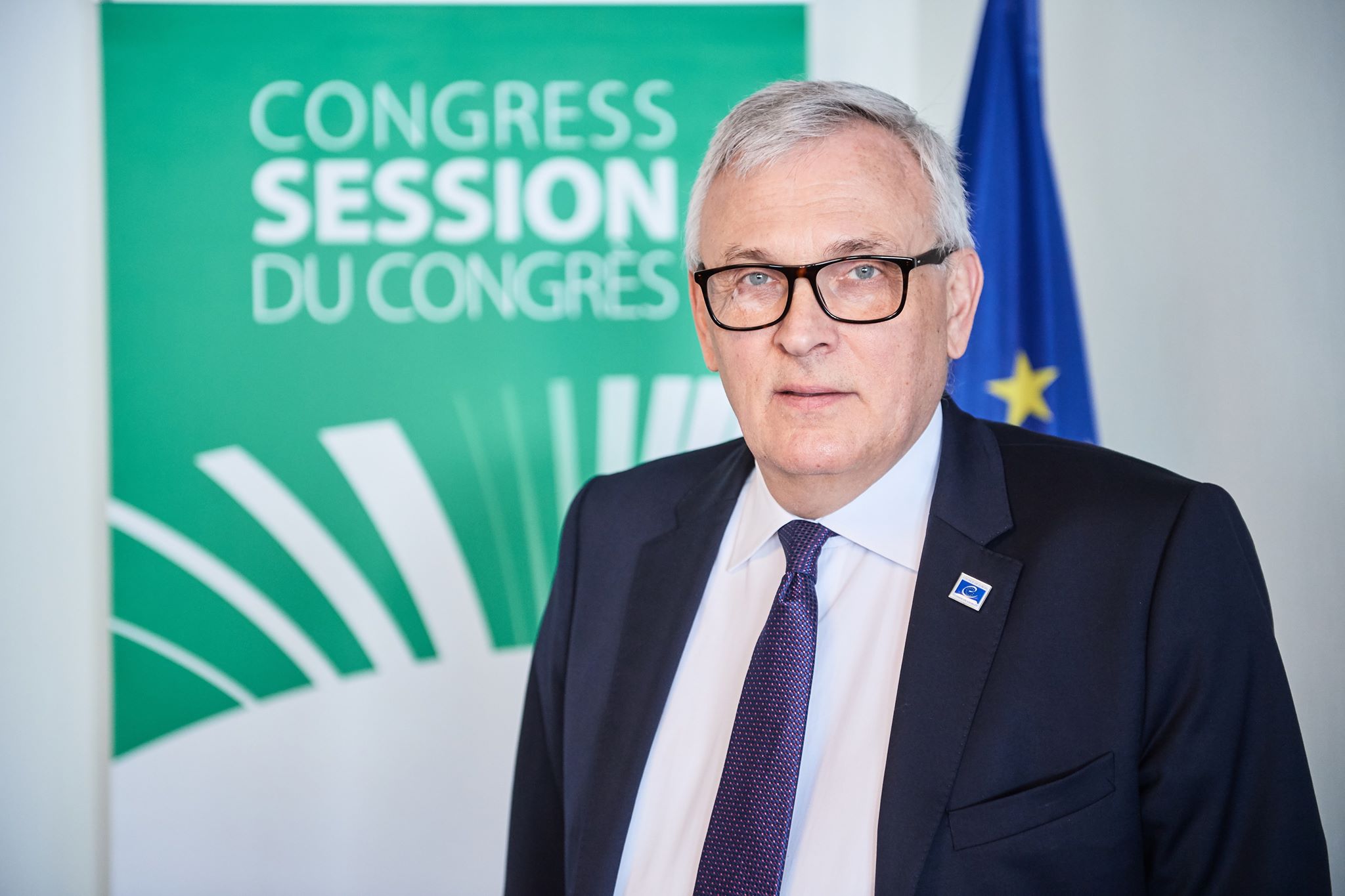This year marks the 70th anniversary of the creation of the Council of Europe – an ambitious endeavour aimed at putting an end to centuries of wars on the European continent and at establishing – to quote the resolution of The Hague Congress of Europe in May 1948 – a democratic social system to free people from all types of slavery and economic insecurity.
This European project, which by all accounts has resulted – at least in Western Europe – in the longest period of peace in human history and unprecedented quality of life for ordinary people, rests on some European institutions. Among them, the Council of Europe, founded in May 1949, which ensure democratic security based on shared values by upholding political democracy to protect people against the exercise of arbitrary power. It was created after the Second World War in order to achieve a greater unity between its members for the purpose of safeguarding and realising the ideals and principles which are our common heritage and facilitating their economic and social progress.
In 70 years, the Council of Europe has succeeded in creating a democratic system based on the strong institutions of democratic governance, a human rights protection mechanism and a common space of the rule of law. This model of democratic governance at both national and local level represents as much of a landmark feature as its unique system of human rights protection centred on the European Convention and Court of Human Rights. The Council of Europe has played a key role in building pluralist and cohesive societies, which can be rightly seen as one of its main achievements.
Yet today, this model is in danger of unravelling. The protection it offers to Europeans is being challenged by far-reaching changes that affect, to varying degrees, all nations. We are witnessing the deterioration of democratic security as common values and standards are being called into question in multiple member states, and the rule of law is being regarded as an obstacle to action. We are witnessing the loss of public confidence in politicians and the institutions of governance, and in their ability to protect citizens and respond to their needs. We are witnessing the birth of new social and political movements initiated by citizens who feel ignored and let down by the system. According to the European Union’s Eurobarometer of November 2018, more than 6 out of 10 EU citizens do not trust their government or parliament, and 8 out of 10 express mistrust in political parties.
Read also
This crisis of political representation seriously undermines the functioning of representative democracy and tears at the very fabric of our societies, driving a wedge between “Us” and “Them” and fuelling a “clash” vision of society rather than a culture of living together. Stopping this destructive momentum, restoring the link between citizens and authorities requires an honest dialogue with people, a dialogue between the State and communities.
This dialogue has been ongoing in our villages and towns, at the local level of our territories where mayors and councillors, local elected representatives have remained at the frontline of major events in community life, the first line of response to citizens’ concerns – and the last rampart against a more widespread rejection of political representation. The same 2018 Eurobarometer placed the level of trust in local authorities at 50 per cent, well above the level of confidence in national governments and parliaments.
Mayors and councillors, as local elected officials, are the representatives of public authorities who are closest to citizens. Central governments can and must use this proximity, the trust in local authorities and their network to rekindle democracy. Local and regional authorities are indeed crucial for upholding a strong social fabric, and there is a need to reassess their role in building a European democracy, and their impact on citizens’ participation in public institutions.
The local level is an ideal one for participatory democracy as it ensures a substantial degree of people’s engagement in public affairs and decision making and provides an excellent platform for using innovative practices and tools. Local and regional communities are also key players in asserting cultural identity and implementing national policies.
National governments themselves recognised this when, in the preamble to the European Charter of Local Self-Government, they defined local democracy as one of the main foundations of any democratic regime. They also recognised this when, in 1957, they showed their political vision by creating a conference of local authorities within the Council of Europe and transforming it 25 years ago into the Congress of Local and Regional Authorities – with the task of advancing local democracy and strengthening the important role played by local and regional communities and their elected representatives.
The mission of the Council of Europe is as relevant today, in the face of the current challenges to European democracy, as it was 70 years ago, in the wake of the Second World War. Back then, a few years after the Council of Europe’s creation, member States recognised the importance of local democracy and local authorities, and the need for their input to the European construction.
This role of local authorities is as ever more important today. Today, sustaining the European model requires, as never before, greater involvement of the local communities and their authorities. Local and regional authorities can help significantly to reconnect with citizens and restore confidence in institutions The Council of Europe member States created the Congress to strengthen the local and regional dimension of European democracy. As the assembly of local and regional elected representatives of 47 European countries, as the voice of more than 150 000 territorial communities in Europe, and the monitoring body for the European Charter of Local Self-Government, the Congress is well placed to contribute its experience and that of the municipalities and regions it represents, in order to develop comprehensive strategies aimed at revitalising and regenerating European democracy.
As we celebrate 70 years of the Council of Europe, it is essential to recognise territorial democracy as a crucial pillar of our democratic system.
Anders KNAPE
President of the Congress of Local and Regional Authorities
The article was provided by Anders Knape to Emin Yeritsyan, the head of Armenian delegation in Congress of Local and Regional Authorities and the head of Union of Communities of Armenia.



























































